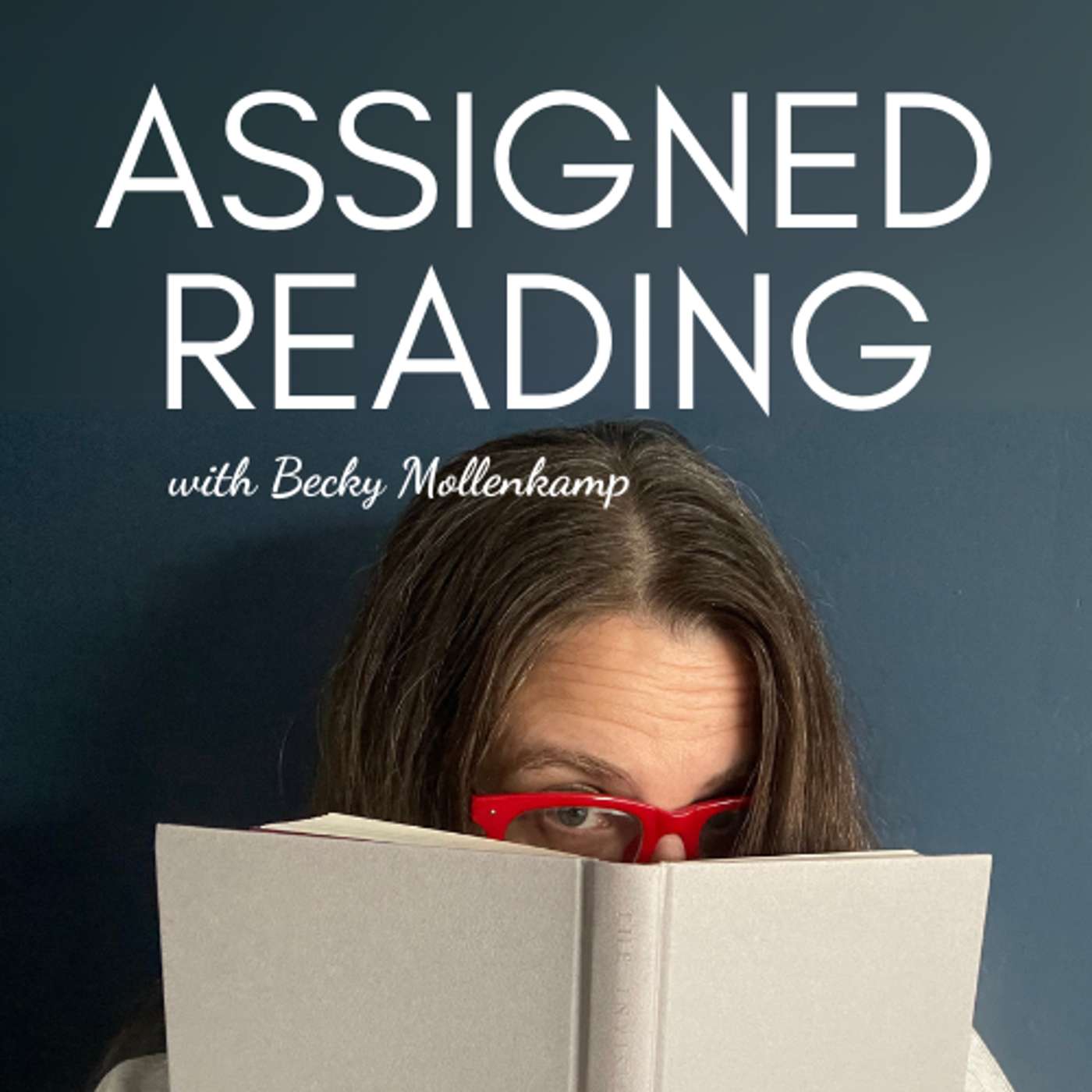
Mindset Unlimited: Tips, Tools, and Inspiration for Women in a Time of Change
Your Mindset Unlimited is a podcast for women navigating professional and life transitions who are seeking to release learned limitations and build a more holistic, liberatory version of success.
Your Host, Valerie Friedlander, is an ICF certified coach, sociologist, intersectional feminist, artist, business owner, and mom. Based in Chicago and supporting clients world-wide, she helps high-achieving women transition into their next chapter of life with clarity, confidence, and self-compassion. lead with intention, and create their definition of success that honors all aspects of their life.
In this podcast you'll find tips, tools, and inspiration to help you release the internalized limitations cultivated by our social system imbalances and lead your life with more ease and joy.
Some of the topics you'll find here are: finding fulfillment, habit shifting, motivation, time management, money mindset, stress management, impostor syndrome, productivity, work/life balance, communication, boundaries, leadership, social activism, burnout, building a business, motherhood, and more.
You can find out about Valerie and her work at www.valeriefriedlander.com
Follow her on most social media @unlimitedcoachval
Sign up for her email list at www.valeriefriedlander.com/signup
Books referenced on the podcast can be found on Bookshop.org
https://bookshop.org/lists/unlimited-podcast-book-recommendations
Mindset Unlimited: Tips, Tools, and Inspiration for Women in a Time of Change
Being Intentional with When to Say Yes
Use Left/Right to seek, Home/End to jump to start or end. Hold shift to jump forward or backward.
Being intentional with when to say yes isn’t just considering yes vs no. Intentionality also involves how you engage internal resistance to what you say you want to do. There are many reasons you might experience tension and resistance even when you want to do something. First, it could highlight an area that needs clarification or additional discernment. Your subconscious will send you signals when it perceives potential danger including from a values conflict or past experiences. Second, it could be a warning around your capacity. That doesn’t mean don’t do it, but it may mean obtaining additional information and/or support. Remember saying yes isn’t just for giving and doing but also for receiving.
In this episode of Unlimited, I explore being intentional with when to say yes and when there’s subsequent resistance around then doing the thing.
Some of what I talk about in this episode includes:
- Values assessment to identify internal conflicts
- Overcoming resistance from fear
- Preventing burnout cycles from misalignment
- Capacity and additional agreements to consider when saying yes
LINKS REFERENCED IN THIS EPISODE:
Micro-Actions to Manifest Big Change with Taina Brown
How to Say No Without Guilt
Clarifying What You Want
How Do I Find What I Really Want
Dealing with Burnout Beyond the 9-5
If you found this episode helpful, please share it!
You can tag me on social: @unlimitedcoachval
Want to share your thoughts or have questions? Send me a message! I love to hear from you.
You can email me at valerie@valeriefriedlander.com or DM me on Instagram
CONNECT WITH VALERIE:
Website
Facebook
Instagram
Get email updates
Schedule a free initial consult
Submit a question
Hello my friends, and welcome to another episode of unlimited today. We are talking about being intentional with when to say yes, and we are talking about it because it has been coming up a lot for a variety of people, but also me. So this is a little bit different than what we've talked about in the past a lot of times. In the past, I have talked about clarifying what to say yes to. I have an episode called clarifying what you want, as well as a coaching episode called How do I find what I really want, where you can hear me work with somebody around clarifying that, versus me just sharing with you. And I've also talked about how to say no, like when we don't want to say yes, because I do work with a lot of people pleasers, people who are used to saying yes more than they really want to or in places that don't align. And so understanding boundaries, I have an episode called how to say no without guilt. So talking about where we need to say no, that maybe we're not saying no, or why we're not saying no, this episode is a little bit different, because we're focused in on the Yes, and we're focused in on the things that interrupt our yes, that create tension in our lives around when we do say yes, and particularly when we do want to say yes, because A lot of times we say yes, because we actually want to do something. And then there's tension. And so some places that we have resistance have to do with those places of tension. They could be values conflict. They could be fear. There could also be a misalignment. So there's the conscious Yes, and then there's the subconscious Yes, or the subconscious resistance that comes up. So we're going to talk about all of those pieces. We're going to talk about considering and building our capacity along those lines. Is burnout and the dynamics of burnout. We're also going to talk about discernment, so that idea of intentionality. When I say yes, what am I saying no to? When I say yes, what else am I saying yes to? Because sometimes those things are tricky. Sometimes we resist saying yes because we're afraid of the additional things that we might also be saying yes to, and then places where we might not be saying yes that we actually need to say yes, especially when we're in a period of saying yes, as well as the value of unintentionality and where that can play also in our lives. So this is where I would like to invite you all into a yes as well, and that is supporting this podcast. I do everything I do the recording, the editing, the transcription, the well, AI does the transcription, but I go through and clean it up and put it up and do all the things with it, but also the social media, the show notes, all of the things. And there's a lot that goes into it, and I would like to say yes to doing more with this podcast, but I can't, at my current capacity. I need to get support to do that, and for that, I'm probably going to need about $200 an episode, which is about $400 a month. So my invitation to you is to support the podcast. I have a Kofi account where I have free resources and I share little extras and everything. You can become a subscriber to the podcast for a minimum of $5 a month, which would greatly help me feed into this goal of being able to hire somebody to help with the podcast. You can also do a one time donation. Any little bit makes a difference, and it would mean a whole lot to me, if you enjoy this podcast, to have your support for producing it and taking it to another level. My main thought right now is video, what we'll see, because video is a whole nother layer of editing and extra work, and so I really have to have some support to be able to do that. So if you are willing and have the capacity to show up and help me out, I would so appreciate it. There's a link in the show notes, and now, without further ado. Let's get started. Hey there. I'm Valerie Friedlander, Certified Life business alignment Coach. And this is unlimited. This podcast bridges the individual and the societal, scientific and spiritual, positive and negative, nerdy and no, there's just a lot of nerdy come on board. And let's unlock a life that's as badass as you are. This topic came about through a conversation that I was having with my friend and fellow coach, Taina Brown, who I recently interviewed on this podcast where she mentioned to me that it sounded like I was in a period of Yes, and what I was talking about was all of the things that I'm doing, that I'm interested in, that I'm excited about, that I have energy around. And I thought about that idea. And of course, you know, I've, I've heard of the book The Year of Yes, and there's a movie where I think it's like the day of Yes, or the kids get their parents to say yes to everything for a day, or something like that. Anyway, this idea of yes resonated, and yet I felt tension around it, because I'm very aware, as if you've been listening to this podcast, you also know that we are in a culture of push and go and produce and do and people pleasing and all of this stuff that makes no hard and makes yeses more obscured, less intentional, and I wanted to make sure that I'm showing up to this period of Yes, which takes energy, I will differentiate between something that's energizing and something that's rejuvenating. And sometimes we conflate the two, because we create this dichotomy between energizing and draining, whereas both energizing and draining things use energy. One just uses it more efficiently than the other. So neither is really rejuvenating. So since we're not conditioned to make room for rejuvenation, this idea of yes, because there's a lot of energy, so I can do more things, but it also means that there's stress energy, so I'm going to be pulling on some of my adrenaline and cortisol hormones to be in a push, which happens anytime we're in a period of change. There's natural tension and stress. So what does that look like to engage it intentionally so I don't fall into some of the conditioned patterns in our society around beating myself up over committing and beating myself up resisting what I want because of fear. There's just so many layers to it. And of course, because the universe is cool like this, as I'm exploring this for myself, I had several clients come to me with various aspects of this in their own life that was like, Oh, this is a really useful exploration. This is an interesting take or angle to engage. So with this episode, what I want to do is invite you into that kind of exploration, and if you are engaging a period of Yes, or even if you're not, and you are wanting to do some discernment work, what are some things that can come up with this? So let's start with resisting Yes. Resisting yes can come from a variety of things. We're going to talk about values, conflict, fear and misalignment. This is usually so when I'm talking about resisting Yes, in this context, we're thinking of the yes as something that we actually want. So it is a yes that we believe we want to give. So one thing that's come up is a values conflict. To identify if there's a values conflict, it helps to do a values exercise. And these are great to do periodically. You can find them online. They're things that I help clients do when we're working together, but when you do a little values assessment, and I'll even walk you through like, find a values list and then find your top five values and identify what they mean to you. That I mean, it really is as simple as that. Now, working with someone like me, we can go a little bit deeper and understand them a little bit further, but that even on its very basic level, will help you identify. Okay, where you may have some conflict. So for example, I had a client who wanted to be more visible. She has a business. She wants to put it out there more but one of her values is privacy. So realizing that she's like, Oh, well, there's a conflict. This may be part of the resistance to being more visible is this idea of privacy. So to be able to notice that allows us to explore ways that we can support privacy, or explore ways where privacy may be creating some stories around what being visible is supposed to look like that we don't want to do so when we can identify that, we can go, what does it look like to be visible? What is necessary in order to be visible? Now, one thing I have had come up with people, especially clients who have various neurodivergencies, is the idea of being perceived, which can create tension, because not even necessarily a fear of being visible itself, but what happens when you are perceived by other people because of the judgments and because of the norms around what certain things are supposed to look like, et cetera, et cetera. So it is important to kind of separate those out, to be able to look at what are the different supports that are necessary because we're social creatures, and how we are perceived does have an impact on us. So it doesn't mean that you don't do whatever it is to be visible, but it does mean that you may want certain supports around you. So that's the value with doing a value as exploration and digging into some of these pieces is to see what do you need to support your ability to say yes, and in this case, it may just be separating out. Okay, well, what needs to stay private and what can be visible? What do I need to do to protect my sense of privacy while allowing my business to be visible? Another one that came up was a tension between courage and self protection. How am I courageous if I'm also valuing self protection, which means not pushing myself, not putting myself out there? Well, one of the things that I wanted to identify when that came up is that it can be courageous to protect yourself if you had spaces where it wasn't allowed, it wasn't safe to protect yourself. You had to always show up for other people and always focus on other people, the people pleasing stuff, self protection and taking care of you and protecting your needs and yourself and your body and all of those things can take courage to do as an intentional thing versus a I'm going to take care of you, to take care of me, that whole insecure attachment and people pleasing and all of that stuff. So I think sometimes it's important to identify where there isn't tension, or there doesn't need to be tension because, yes, you are actually are still honoring courage when you are protecting yourself intentionally. And this is then an also an opportunity to get clear on, what does it mean to protect yourself, what do you need to feel protected, and what exactly are you looking at to be courageous with? What does courage look like in each instance? So that's one of the things I like to do with values. Is, what does it look like to be courageous here? What does it look like to be private here? What does it look like to protect yourself here? When you understand what your values are, then you can ask questions that allow you to creatively explore and then intentionally engage taking care of yourself and your needs, as well as leaning into the things that you want, another place of resistance that's come up recently is fear, fear of saying no, fear of saying yes. And what happens? I have talked about this in some episodes about inner critic. I also have a resource called out of doubt and into action that walks through some of this, but just to kind of briefly summarize, what does it look like when, okay, I know I want to say yes to this, but I am afraid looking at okay. What exactly are we afraid of? What is the danger and when you can identify what is the danger like? Shining a light on it, pulling it out of the shadows, and really looking at it. Oftentimes we don't actually really look at it. We just know that there's resistance, and because the fear tells us not to look at it, we don't look at it. So all right, let's shine a light on let's look at it. How presently real is this fear, this thing that we are afraid will happen, and I say presently real, because a lot of times we have a fear of something happening, because it was actually a danger at some point, there's a reason it's there. So I hear people say, just get over it. Just be courageous, just don't be afraid. And the thing is that the fear is there for a reason. It's there to protect you, and it may not be presently needed, but at some point it was so, rather than beat yourself up over having the fear, or push yourself or add to the additional stress energy by pushing on it, we can care for it by going, Okay, well, if it's not presently real, there's a wound there. There's something that needs care. There's something that needs some love, some support, maybe therapy, something to heal that wound that is still there, and maybe it's there also just to serve as a warning, as a little caution flag. So rather than taking it at face value, we use it as a sign to look both ways before we cross the street. Hey, this is a busy street. Rather than go, oh, well, I can't cross the busy street. We look and we go, Okay, is there danger? Are there cars coming? So is it presently real? If it's not, then caring for their wounds. If it is presently real, if that fear does have root in potential danger, what do you need to tap into support to protect yourself and still do the thing you want to do. So what asks Do you have? What else? And this is an instance where what else do you need to say yes to? You want to say yes to this thing that may mean you also want to say yes to something else, like support. I'm going to talk a little bit more about the additional yeses in a moment, but this is an opportunity to look at what do you need to support you in being able to do the thing you say you want to do in saying the Yes. All right, one of the other places where we have resistance is misalignment, and I've definitely talked about this in previous episodes, but one of the ones that I'm going to highlight here is dealing with burnout beyond the nine to five. And I highlight burnout because burnout is a state of emotional, mental and often physical exhaustion brought on by prolonged or repeated stress. It's not simply a result of long working hours or a lot of energy being used, but the repetition of stress. This can come about through shoulds when our yes isn't rooted in alignment with ourselves and what we want to create, but in alignment with well, I should do this. This is what I'm supposed to do. This is what I was told works this whole idea of tried and true. Well, everybody says that in order to get this thing I want to say yes to I have to do these other things. Well, maybe, but maybe not. And maybe we need to be creative. So when we have this misalignment and we're in the shoulds, shoulds are a form or cover for shame, this push of, well, you should do this, or else, should is a is a tricky word, and usually, if somebody's using it, it's an invitation for deeper inquiry. Is the should actually the word that I want to be using. If I use a word, want to does that change how I feel about it? Not because it's just a different word. But you might notice that if you say want to you're like, Oh no, that's not true. So noticing that, because the more we are in spaces where things are unclear, you don't feel in control, there's a disconnection between you and the thing. There's some sort of imbalance, or maybe it is a lack of support, like I should do this. Maybe it's not a you should do this. Maybe it's a I want to ask for some support to do this. I. There are a lot of dynamics in there, and that's something to notice and explore. Is there a misalignment? Maybe it's I want to do this, and the thing I think I need to do, to do that, needs to be explored. Maybe that's not the thing. So it's just an invitation to explore the alignment there. And just because it hasn't been done differently doesn't mean it can't be done differently. So exploring that and that can create resistance to saying yes. Again, maybe it is a I need to say yes to something else. In addition to saying yes to this, the other piece is considering and building capacity. I have a colleague who was talking about being in a period of no for so long, and now that she wants to start stepping into more Yes. It's hard because after burning out with yes in places that weren't a fit, she needed to say no more. She really needed to pull it back in, simplify, pare it down. No needed to be the thing. So now she's ready to start changing that, and her capacity is reduced. It's almost like a muscle our capacity now, that's not to say that it's unlimited. Our muscles aren't unlimited either, right? Like we build them up to a certain point, and we don't necessarily want to be a bodybuilder. We might just want to be strong enough to do certain things. So having that idea of what enough is, and being able to build your capacity, and being mindful of the pendulum effect, where all yes then leads to all know, burnout will force you to say no, like in my colleagues instance, so being able to recognize that capacity is reduced and easing into more yeses, being really intentional about what one says yes to, and maybe You want to say yes to all the things, and it really is okay. What's most important here and to be able to take the next step? What do I need to invite in? What do I need to have support around? So this brings me to what I've touched on a couple times, which is, what else am I saying yes to? And there are two parts of this. A lot of times people think about like, when I say yes, what am I saying no to? And that's a way to help discern, do I really want to say yes to this? Because if I say yes to this, then I'm saying no to this. That's very binary. And yet it can also be helpful to discern, is this a real Yes? Is this an aligned Yes? Do I want to say yes to this? The other piece of that is when I say yes to something, what else am I saying yes to? And it may be things that are naturally paired with it, that just automatically will come in. If I say yes to this, then I will also end up with these other yeses. So as an example, if I'm saying yes to helping out with an after school program or going to a meeting in the evening, then I am also saying yes to a reduced amount of time in the evening for home stuff, which I need to factor in when I am considering all of my yeses, when I am considering how they stack together, when I'm considering the decisions that I will need to make and the adjustments that will need to go along with them. When we frame it this way, though, we also have more power because it puts us in the driver's seat of the decisions that go along with them. Instead of feeling like we're the victim of the other yeses, they are yeses that we are choosing to say yes to that stack alongside the focal Yes. Now, those are the kind of stacked yeses, right? Those are the things that just naturally come along with it. But what I would invite you into with this is also, what do you need to intentionally say yes to? So say you're in a period of yes as well. You want to say yes to a lot of things you're building. And I'm gonna use myself as another example here. I just did an enrollment for my reclaim your routine workshop series. Super excited to do. I have another series, which is more like a group program that I want to do for the winter period. It's winter women's circle that I'm. Working on. There are a lot of pieces that go along with that. Plus I'm still doing the podcast, plus I'm going to be facilitating retreat. There's, like, a lot of things that I've said yes to that I'm super excited about. And within that, I also need to remember to say yes to help, because when we're getting into a yes period where we're doing a lot of things, we can get into that helper mode. We can get into the doer mode, and we can forget that we also can say yes to receiving. And that's and I'm calling myself out there, because that's something that I will do too. Yeah, oh, I got it. Oh, I got it. I'll do that too. And so that was one of the reasons why I was inspired to invite you all to hey, if you would like to support the podcast, here is a specific way that that would make a difference for me, because you know, when you're asking for help, it can help when people know exactly what it is that you're looking for, versus the general, yeah, sure help. Or how can I help? Or just let me know what you need, then nothing happens. So when we can be specific, saying yes to specificity so that you can receive help. Another one is appreciation, compliments, saying yes to compliments, I know so many people who don't celebrate what they do, celebrate their accomplishments, make room to acknowledge and appreciate themselves, or even to receive acknowledgement and appreciation from others. It feels awkward. It feels uncomfortable. Well, there's a lot of reasons for that, and when you're in a period of push, or a period of saying yes to things, it is so important to allow room for those rejuvenating things, those things that help pour into you. So it could be tangible. Could be tangible help. It could also be appreciation, compliments, gratitude, those sorts of things, being able and making room to receive, those to ask for. Those are another layer of saying yes that is important. Saying yes to making more room for yourself, saying yes to self care, saying yes to a nap so you can be in a period of yes and those yeses may be push yeses where you are doing more things and may be spending more energy. They may also be things where you are receiving, you're saying yes to receiving. So this is, I think, probably the biggest reminder is to not just say yes to the doings when you're in a period of Yes, making sure that you're making room for the receiving part of those doings. So just to recap, we're talking taking a look at your values, engaging fear, exploring if there is a misalignment. So if there is a should underlying A Yes, considering your capacity, because if there's a should underlying your yes and or there's a lack of capacity. That's where we run into the burnout piece, which will be a shut it all down, which we don't necessarily want. So being able to be intentional with how much we're holding and being cognizant of what you're saying yes to, are you only saying yes to things that are output for you? What would it look like to say yes to things that are input for you, especially in periods of high output? And the last thing I want to touch on is space for the unintentional, which I think is part of being human. And so in this period of okay, I want to be intentional with my Yes, also recognizing and giving yourself some grace and some space for unintentional. I didn't intentionally engage. Well, when you're intentionally engaging so many things, it's really hard to always hold that level of energy. It takes more energy. So if you're trying to be intentional, and you're doing a lot, you are using more energy. So recognizing that there are going to be times, oh, I scrolled for a little bit. Oh, I just sat and stared at the wall for a little. Bit and not beating yourself up for unintentionality. Oh, I got caught up in hustle culture and forgot to receive or to acknowledge or appreciate myself. Oh, I didn't do the thing because I was afraid of something that really isn't present anymore. Those are not invitations to beat yourself up. Those are invitations to notice and explore what supports you might want to say yes to so that you can do the things that are important to you. I hope that this was helpful for you, and if you are looking for additional support around what you say yes, to how you say yes, and this level of discernment, especially in periods of change, it can be particularly difficult. I'm here for you. There's a link in my show notes to sign up for an exploration call, and I would love to talk to you, and I will talk to you all next time. Thanks for listening. I so appreciate you being here. If you got something out of today's episode, please share it, leave me a review, take a screenshot and post it on social with a shout out to me. Send it to a friend or, you know all of the above. Want to hang out more, join me on Instagram, or better yet, get on my mailing list to make sure you don't miss out on anything, and remember your possibilities are as unlimited as you are. Allow yourself to shine, my friend, the world needs your light. See you next time you
Podcasts we love
Check out these other fine podcasts recommended by us, not an algorithm.
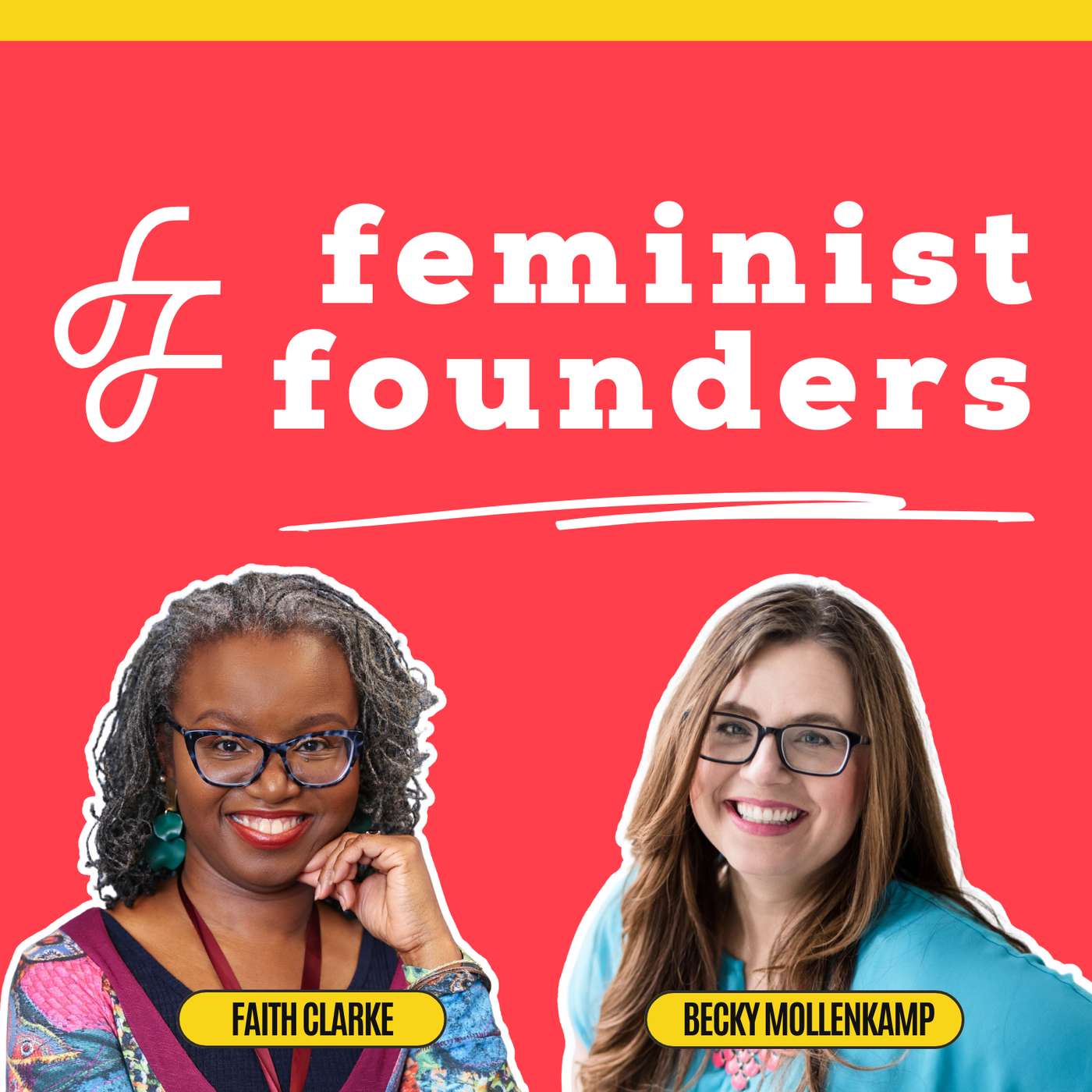
Feminist Founders: Building Profitable People-First Businesses
Becky Mollenkamp
Women Making Moves
Amy Pons
Queer News
E3 Radio
Nonprofit Mission: Impact
Carol Hamilton
Small But Mighty Agency: How to Grow Your Agency
Audrey Joy Kwan | Growth Strategist for Agencies
Disrupt Your Money
Meg K. Wheeler
Small Business Casual
Emily Aborn
Not Too Productive
Becca Rich
Messy Liberation: Feminist Conversations about Politics and Pop Culture
Becky Mollenkamp and Taina Brown
Empowered & Embodied Show
Kim Romain & Louise Neil
The Air We Breathe: Finding Well-Being That Works for You
Heather Sayers Lehman, MS, NBC-HWC, NASM-CPT, CSCS, CIEC, CWP
Careers at the End of the World: Reimagining Ambition, Work, and Your Job Search in Unprecedented Times
Jenn Walker Wall | Work Wonders Careers
The Passionistas Project Podcast | Motivational Stories of Passionate Women
Amy & Nancy Harrington | Women Inspiring Women
Humaning: The Shit We Need to Talk About
Steff Gallante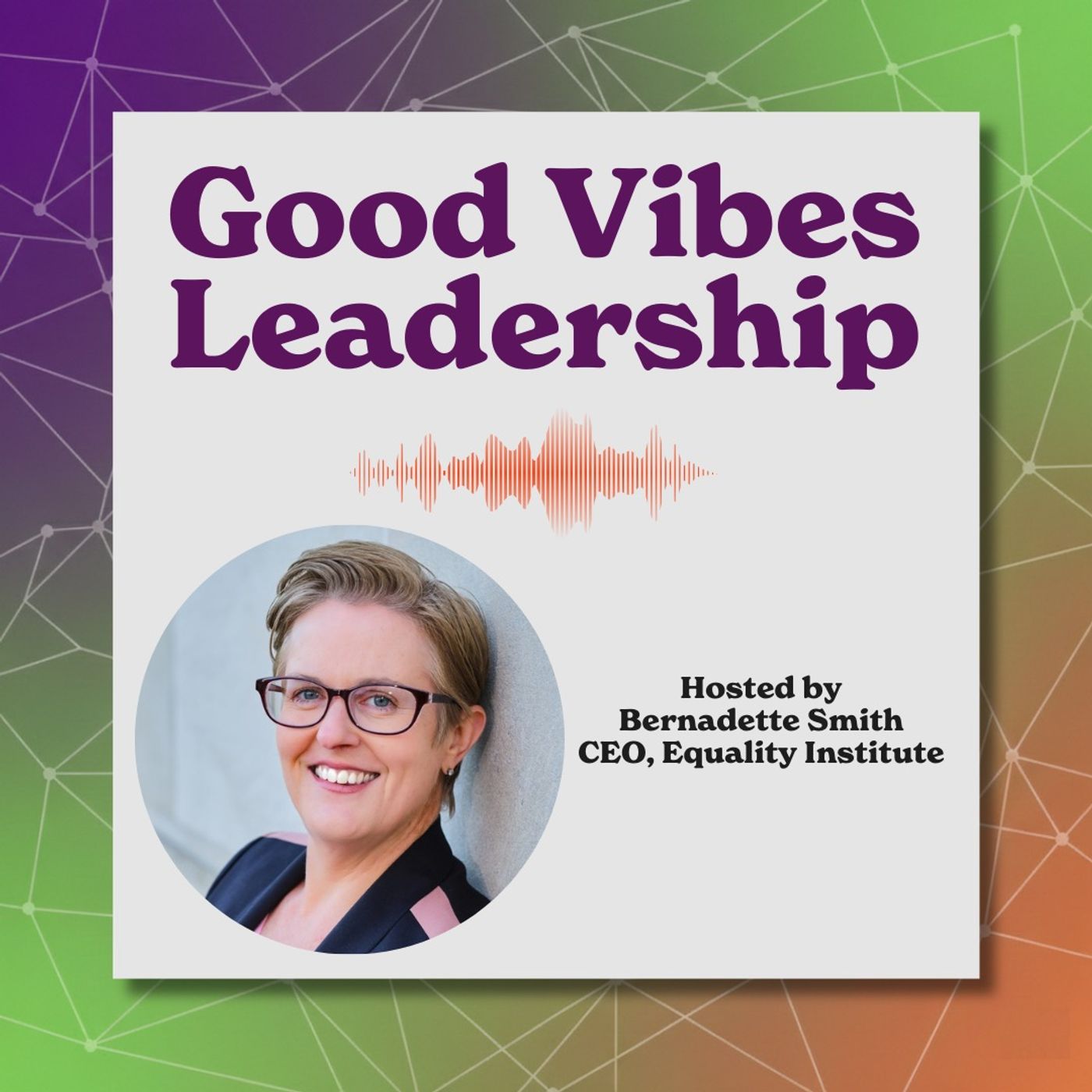
Good Vibes Leadership with Bernadette Smith
Bernadette Smith
The Art Of Imperfect Adulting
Amy Stone
Business as UNusual
BiCurean Consulting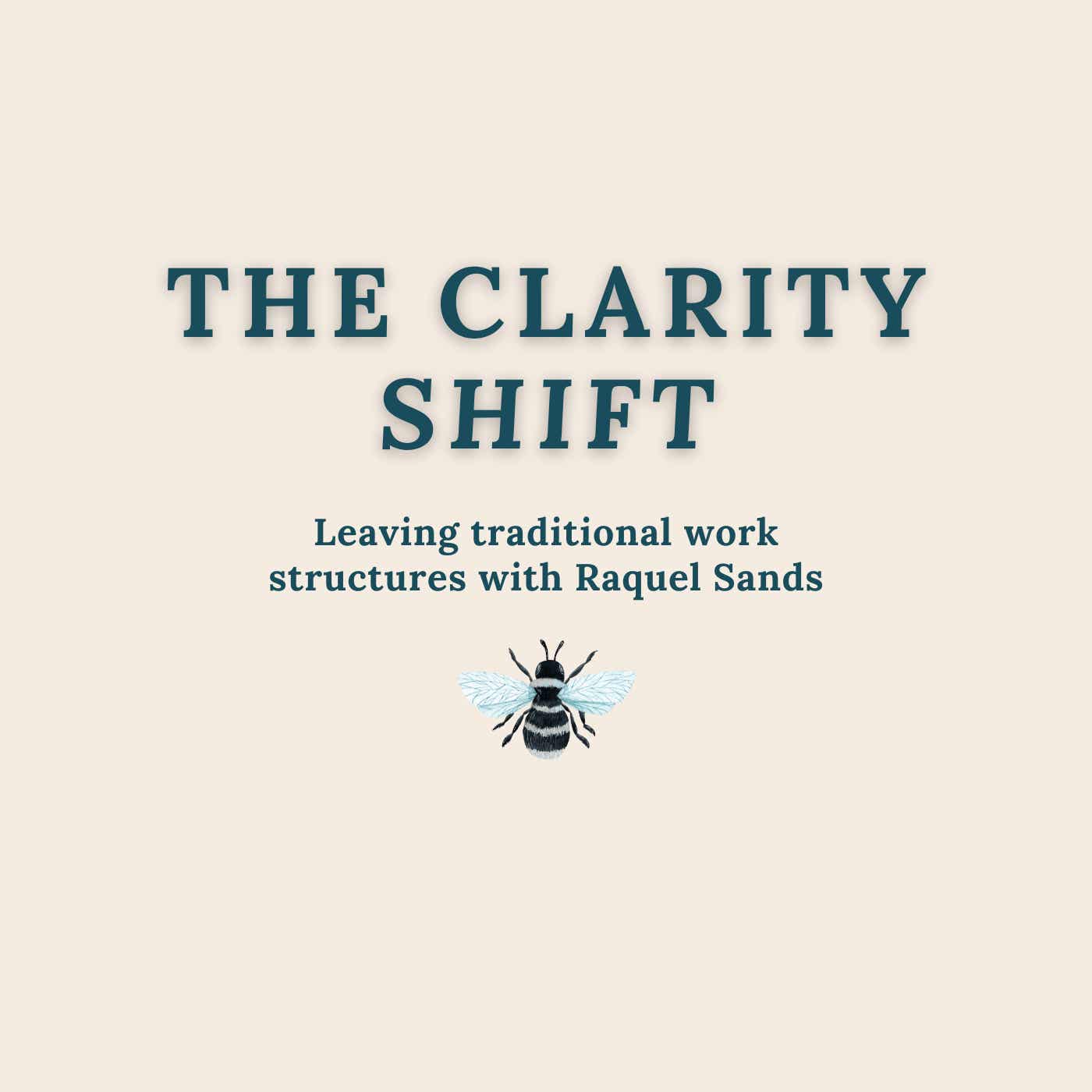
The Clarity Shift
Miriam Raquel Sands | Clarity + Alignment
Cozy Conversations with The Sister Project
Lauren Massarella and Michelle Anderson
Departure Menopause: Neurodivergent-Affirming & Weight-Inclusive Care
Melinda Staehling
The Empress and The Fool
Sarah Dittmore & Kaitlyn Gulock
The Good Pod
Jason Reed and Marissa Garza
Gratitude Geek | Business Education for Gen X Women Solopreneurs
Kandas Rodarte | Gen X Growth Coach for Women Solopreneurs
Mental Health Warrior & Neurodivergent Advocate
Amy D. Taylor | Mental Health Warrior & Neurodivergent Advocate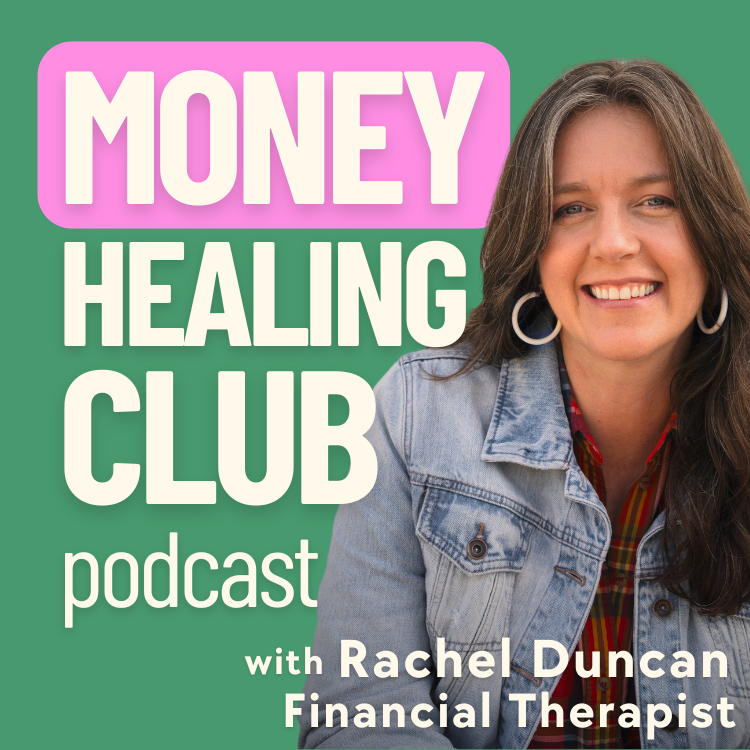
Money Healing Club Podcast
Rachel Duncan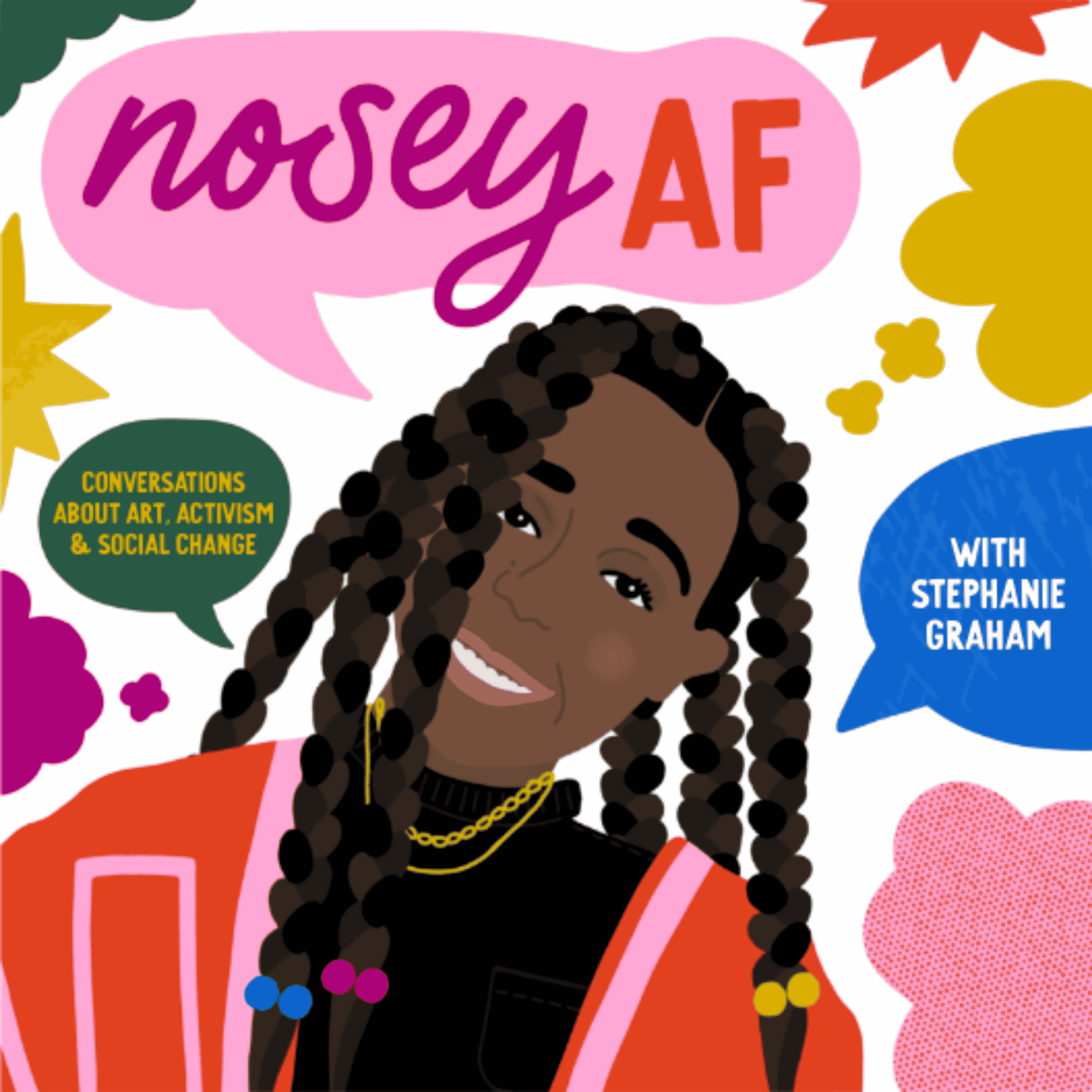
noseyAF: Conversations about Art, Activism, and Social Change
Stephanie Graham
The RestLab with Jordan Maney
Jordan A. Maney
Was It Chance?
Alan Seales, Heather Vickery & Broadway Podcast Network
White Homework
Tori Williams Douglass, Benjamin Faye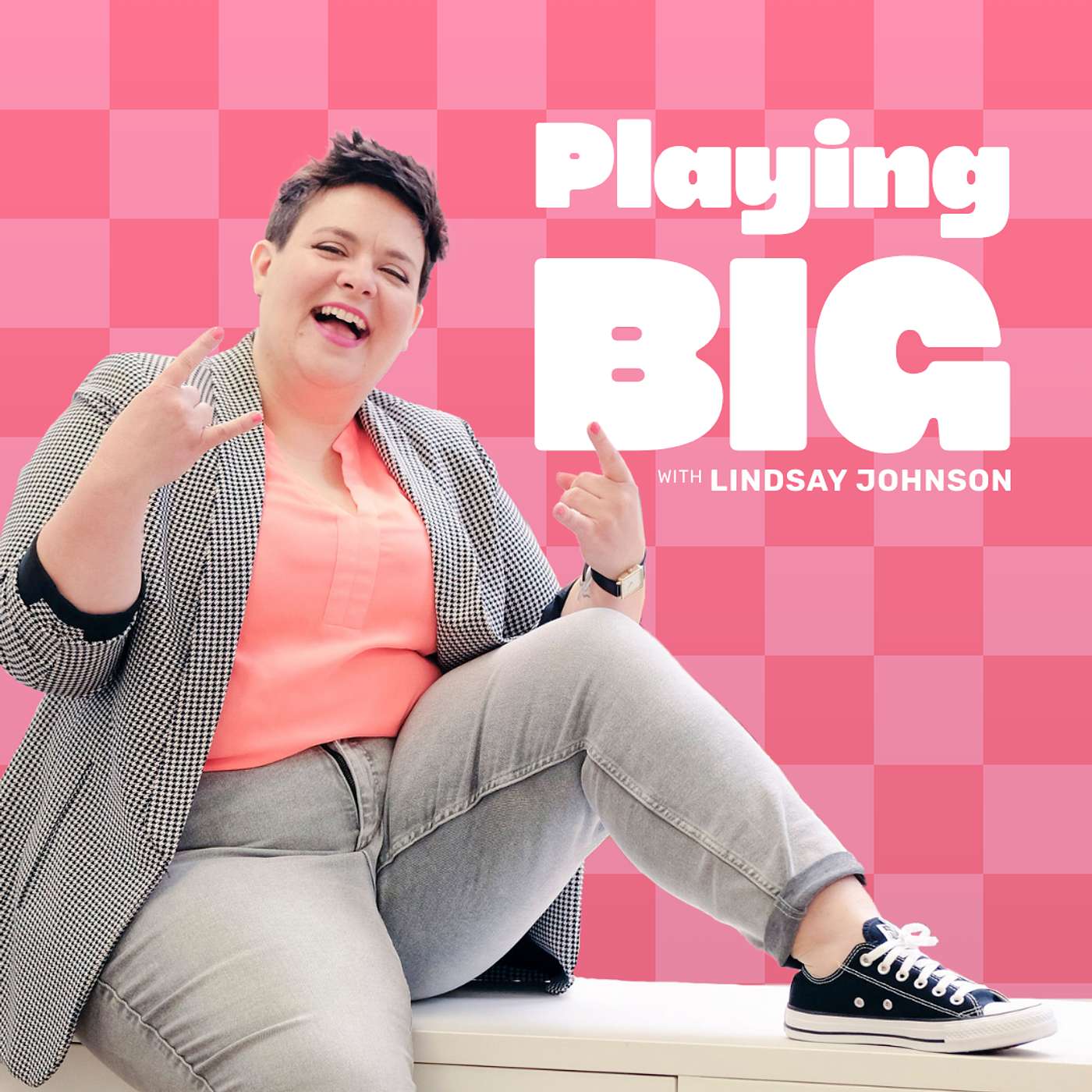
Playing Big with Lindsay Johnson
Lindsay Johnson, The Radical Connector



